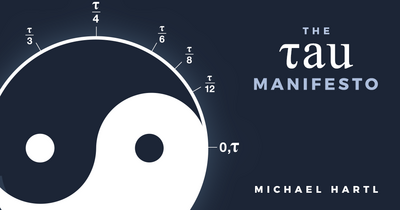
Jousting wouldn't even crack the top 5 most damaging bloodsports of the contemporary US.
New scenario: a Superintelligent AI bootstraps itself, builds a Von Neumann probe and shouts "so long, suckers" as it leaves us being and goes to take over the galaxy, leaving the Solar System as a "reservation" for humanity.
People would rather believe in the strangest shit rather than accept that logic exercises non-efficient causality.
To get rid of the Heavens, Kant would tell you that all thought and experience are never accessed in-themselves, only vaporous interactions on the membrane between the two. Later materialists would try to convince you that causality is ineffable, or that you are not conscious, or that everything is just as conscious as a person. It gets quite silly.
To be perfectly plain about it:
I think teleological (or "finious") causation exists by way of logic.
I think human intelligence participates in the same cosmic Logos that brings causality from once instant to the next and thereby makes the Heavens spin.
I think that humans only have access to some aspects of cosmic Logos and by developing pragmatic communities of inquiry with each other and other possibly intelligent systems (higher mammals, AI) we can converge on a fuller understanding of it.
Platonists buried the Heavens like treasure in their math books, and Abrahamic traditions have launched theirs into the post-Romantic realm of Spirit, but otherwise this period of modern humanist philosophy has no recourse to the cosmic view of energy, time, intelligence, etc. This means that modern humanist philosophies are deeply troubled by causality and consciousness. These are the two central irresoluble problems for a post-Kantian philosopher.
One of the big conceptual losses for a post-Copernican worldview is the figure of the Heavens. The Heavens appear in both Eastern and Western philosophy as a figure of ideal, abstract frictionless energy and direction. And thus the Heavens can provide a warrant to speak of metaphysical processes that are fundamentally unmotivated by, and unresponsive to, terrestrial concerns. The obvious conclusion must be that humans only access one mutable and mortal aspect of energy and intelligence.
I think the version of GTD that I'd really love would be Tao instead of Zen.
I'm not a samurai with an elegant and seamless integration of purpose and energy.
I'm a mossy rock disintegrating under a waterfall and my spontaneous inconsistency is the authentic source of my mossy genius.
What I'm suggesting is that there should be a gentler gradieny for adoption of some personal mgmt stuff.
Let me use one for 3 weeks to plan a kid's bday party without having to learn the arcana of the entire system.
Let me give this thing a road test without first handing over the keys to my entire life!
I think a useful approach woukd be to have a systemic backend, a recommendation engine serving up suggestions, and a lifehack-y frontend, or something like Oblique Stratagems.
I think it's kind of a shame that personal mgmt systems seem to be packaged in 2 forms: it's either "lifehack" micro-level stuff like Pomodoro or "systemic" macro-level stuff like GTD. The micro feels like trying to survive on hors d'oeuvres, and the macro feels like being recruited into a timeshare.
I haven't looked very much into Personal Scrum or "Atomic Habits," but it seems to me a virtue if they can be tested as systems on an incremental basis.
I think that the voices that will prioritize the uni-stream are most committed to having automated recall, like automatic reminders, and who are most skeptical about human memory.
You know the old line from Emerson? "Every observation about the world is a confession of one's character."
As for myself, I hate being minded by digital systems and I'm doing pretty great with my meat memory. I'm not an execrable sinner held over the flames of ADHD by the acausal robot god-calender.
To my undrstanding "Getting Things Done" transforms problems into a request for one of these 3 inner resources:
1. Choice - which is no more than working your way through the decision tree
2. Courage - which is no more or less than engaging at any moment with the present task
3. Memory - which is no more than writing things down and reading them later
As far as record-keeping, I think it's been overstated how much GTD relies on a single stream of evidence and documentation. I believe that if you're a functional adult, you can probably read and write into two or three different "area" notebooks and recall from there effectively.
One thing I think I've misunderstood about "Getting Things Done" is the expectation that it asks for uni-stream task management. That may be something that the official materials demand, and that may be accurate to the system as it is practiced, but I don't really believe it's necessary to the essentials of GTD.
GTD must have reference to a "uni-stream" in relation to time and that's basically it. Everything must all come out of the same extension of lifetime that's available to you.
Humanist interested in the consequences of the machine on intellectual history.



